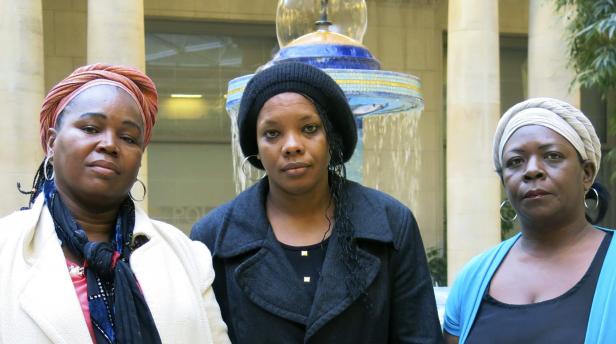
Gloria Amparo Arboleda, Maritza Asprilla, Mary Medina of the Mariposas Network
When a woman is knocked out by her partner, fiancé, or spouse and her assault is caught on camera, is there something to be done at the time of that assault instead of waiting for a tabloid media to use it to make profit?
In “For real equality between women and men,” recently passed in France, violence against women appeared as a component that keeps women dominated. The telephone “grand danger” was part of the tools used to address the immediate crisis and to guarantee the woman who is threatened that she won’t stand alone. In the case of Janay Rice, the “surveillance” camera of an elevator in a casino was not there to protect the woman.
Whether both were drunk is not the issue, the issue is violence and what should be done about it.
Now the video of the assault on Janay Rice is shown everywhere, many have commented and nothing is done to exit from this violence. The woman is re victimized, she is accused of many things from having married the man after the assault to having angered her fiancé and thereby triggering the attack. Meanwhile the main issue for women experiencing this violence is that they don’t have a space to speak.
In this case, Ray Rice, the perpetrator, is punished by the corporate sport organization, the NFL. The sport itself is a spectacle that uses violence to attract viewers. Some studies have suggested that the numerous injuries, mainly cranial injuries, have been overlooked. In a racialized way, the Bread and Circus of the Roman Empire is still a concept in men’s sport. Capitalist ventures in sport demand return on investment, and an organization like the NFL acts as if protecting its logo is more important than reducing the impact of violence on women’s lives. At the same time, players’ injuries may have a role in transporting violence from the playing fields to the everyday life of players. Although it is just one factor, it speaks volumes about the organization and what women who are with the players have to deal with as if it were their designated role.
Meanwhile, the statistics on domestic violence are staggering. In the United States and elsewhere, many don’t report their assaults for fear of repercussions, which take various forms but always affect women gravely, socially and physically.
Celebrity cases are unfortunately not about violence against women. Instead, they contribute to the overall normalization of violence. Many should learn from the women of Mariposas de Alas Nuevas Construyendo Futuro who received the UN Nansen prize on September 12, 2014 for helping and caring for victims of domestic violence in Bonaventura, a place where violence is rampant. As Mery Medina, a member of the group, declared, “The fight is to fight indifference. One way of protesting is not to keep our mouths shut.” It is the only way to form solutions to exit from the violence.
(Photo Credit: Radio Nacional de Colombia / EFE / Raquel Castán)

